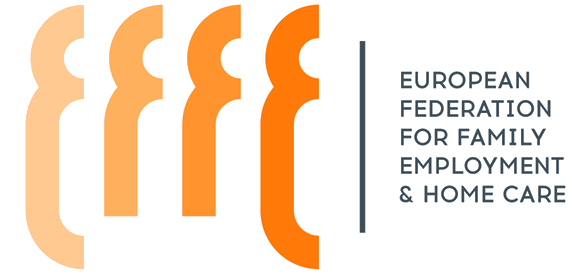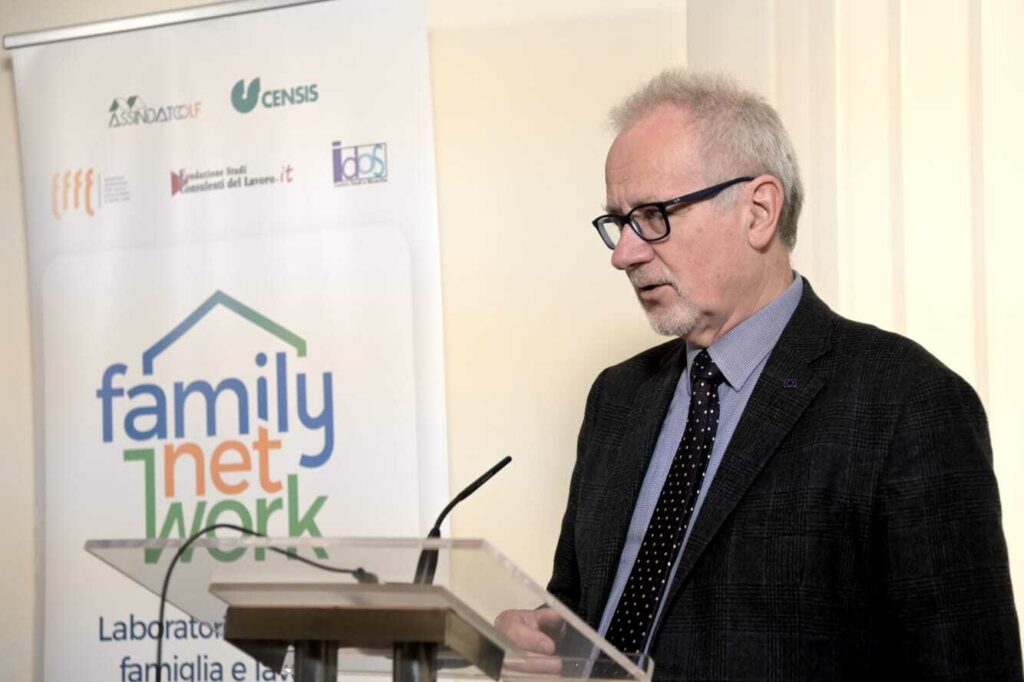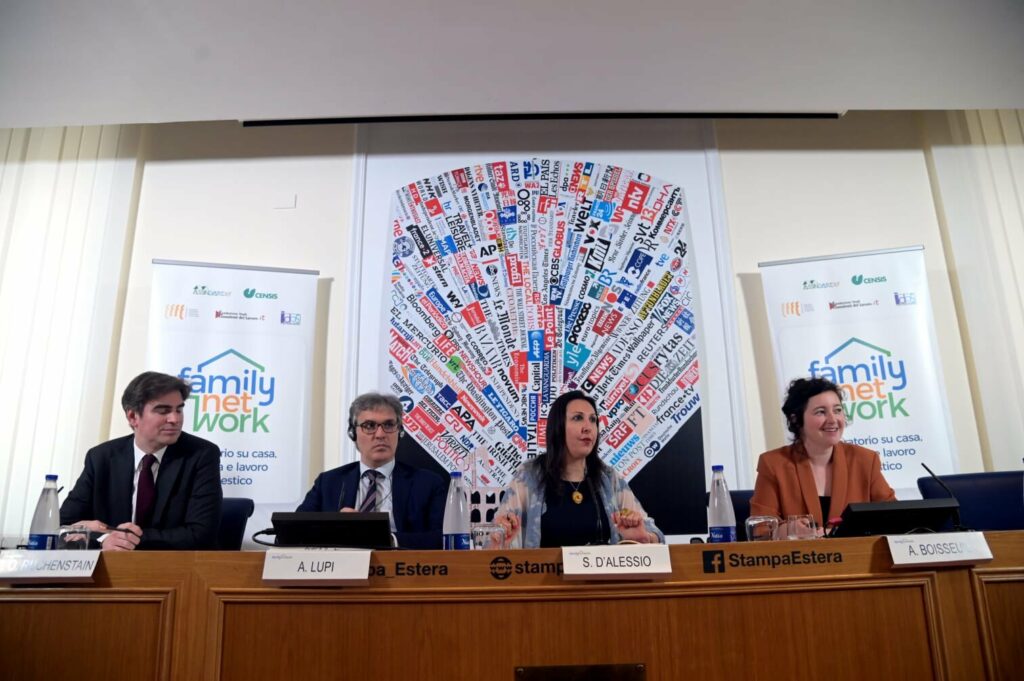
On the 18th of May, the presentation of the 3rd report 2023 of the Family (Net) Work, the Laboratory on home, family and domestic work, the editorial project promoted by Assindatcolf in collaboration with Censis, EFFE, Fondazione Studi Consulenti del Lavoro, Centro Studi e Ricerche Idos – took place in Rome.

This report came back on the issues of home employment, autonomy and the birth rate in Europe, in order to compare the models. This is why, during this event, the General Delegate of EFFE, Aude Boisseuil, presented the map of the sector developed by the EFFE Lab in the 27 EU countries, which enabled this report to identify the best practices to improve the Italian model of home employment with the aim of helping families who rely on the precious help of a child carer or a badanti.
This map is the first deliverable of the EFFE Lab, the European observatory of the sector which was launched in January 2023. Its ambition is to bring together experts from all over Europe to contribute to the recognition of home occupations, its best practices and make policy recommendations.
This report has made it possible to highlight the relevance of the work carried out by the EFFE Lab, and the need to have an observatory to gather data on the home employment sector which we are sorely lacking today. Indeed, this map makes it possible to draw general lessons but also to position the Italian situation in relation to the rest of the EU. The country / common characteristics groups allow to see in which ways the models and policies of the Member States converge or diverge. This evolving tool and the resulting information allow each Member State to position itself, to consider the possible margins of progress by comparing national data. This first deliverable from the EFFE Lab illustrates good practices and innovative solutions in Europe on how the sector can create declared and decent jobs that meet the needs of European citizens. In this way, it offers policy makers concrete solutions to enable better access of women to the labor market and improve the work-life balance of informal carers.
It is in this context that Pierre Olivier Ruchenstain, Chief Executive Officer of the French Federation of Direct Home Employers, presented the French model of home employment, and more particularly its social and tax environment in order to support the comparison introduced by the map. This example made it possible to contribute to the discussions and support Assindatcolf’s request to draw inspiration from the French model so that Italian families can deduct not only the contributions, as is currently the case, but the entire cost of a helping carer.

The mapping figures, highlighted in this report, underline the need to rethink health and social protection systems in the long term. Also recognizing PHS and supporting the sector is essential to provide accessible, affordable and high-quality care services needed for people to live independently over the long term.
As revealed by the French example analyzed in this deliverable, considering all the return effects induced by a PHS support policy can efficiently reduce the real cost for the public authorities. The several figures and examples of the mapping show that incentives, support policies for direct and indirect care and administrative simplification reduce the final cost for users in formal employment of PHS. Formal services are then competitive with undeclared work by allowing access to affordable services and improving worker protection.
Without real support from public decision-makers, the use of undeclared work remains considerable. This is why social dialogue is essential in order to structure a sector that is omnipresent despite the lack of consideration that surrounds it.
In December, the European Union adopted its European Care Strategy, which should be implemented at national level. Each Member State has 18 months to set up national action plans and coordinators have been appointed. The EFFE Lab mapping is an essential tool to show the need to include the domestic and home care sector in these action plans and thus allow political decision-makers to understand the work carried out by our members and how to support it.
Highlights of this event are available here.
The next Family (Net) Work event will be held on the 21st of September, during which its 4th report will be presented.